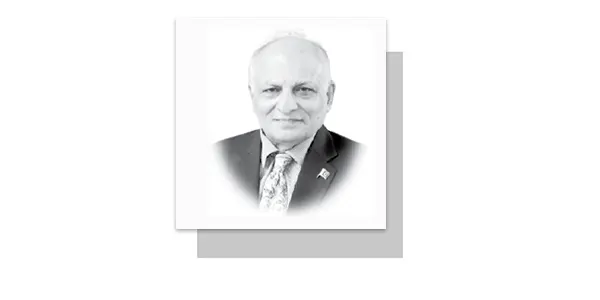RECENTLY, while going through The New York Times International Edition in my hotel room in Geneva, I read a book review of Stolen Pride, written by University of California Berkeley Professor Emerita Arlie Russell Hochschild. In her book, she talks about those people who are trapped in a “pride paradox”. She highlighted this by mentioning the Republicans, Democrats, and especially Donald Trump. I decided to check out whether if and how pride paradox fits in within the Pakistani political, religious, social, and economic ecosystem.
The loose definition of pride paradox is imparting one’s values to others and judging them based on their values has the potential to create a culture of self-righteousness and legalism. This definition, though universal, manifests the culture very much prevalent in Pakistan. The politicians, the clergy, the social activists, and the pseudo moralists, display an aura of sanctimony in their way of life. This is their trump card, and they blatantly use it to justify their attitudes and convictions. Their faith in their own moral superiority convinces them that their own beliefs, actions, or affiliations are of greater virtue than those of others. This misguided mindset becomes so swollen with pride that they consider themselves immune from the drudgery of ordinary existence and hence compensate for this by imposing their self-exalted worth. This game plan does not work for a long time, and soon a situation develops when they are brought down from their high pedestal by those who see through this façade and cannot stand further ignominy of accepting this self-idolatry. This is an example of a pride paradox.
There is a limit to what others can bear, endure, or accept. Thus, in a manner of speaking, the vice of one person becomes a reward for the other. The landscape of Pakistani politics is jampacked with such people. Thousands of ill-informed citizens flock to their public meetings or jalsas to hear these politicians talk about their holier-than-thou attitudes and their deep concern for the hardships of the denizens. They know for sure that they cannot deliver on their promises but are well experienced to convince the hoi polloi that deliverance from these miseries is possible only if they elect that leader and party to rule over them. What is disturbing is that despite false promises and pledges of the past, the masses, like zombies, still believe that this time they would surely be emancipated from their misfortune. As time goes by, they know that they were assured a utopian existence, but they are still in a dark dungeon. That is when they decide that the promised rose garden is just an illusion and thus protest marches, ransacking of property, and brouhaha become the daily features. Those who hoodwinked them are rarely seen in their constituencies and afraid to face the music. This is an example of a pride paradox.
The advent of social media and the expertise of promoting morality, virtue, and ethicalness have enabled the social activists to design their importance, albeit intermittently, because of their penchant to shift from one burning or current issue to another just to maintain their importance or nuisance value. They are masters in mobilizing support by creating momentum, and like the Pied Piper, play the flute to get a crowd to join them. However, their short-lived focus on the issue exposes their short-sightedness, and when they look back, the crowd has thinned. Their vainglory is mostly rejected and their stance on the issue of the day fizzles out without even a murmur. People have other matters on their minds. This is an example of a pride paradox.
The power of the clergy is majestic. The persuasion from the pulpit, the potency of their rhetoric, and the sanctimonious hold on the believers, allow them the space to build up their strength, dominance, and influence. Their oratorial skills add value to their prominence and over time their importance is accepted and they become a force to either deal with or enlist them to achieve some specific objective. Then there are the Ministers who routinely visit the private sector organizations, such as Chambers and Associations. The leaders of these organizations get overly excited when these Ministers come. They spend days preparing the speeches and the desired wish list. They do have pragmatic and doable demands, solutions, and recommendations. Of course, many of these have been presented to erstwhile Ministers and there may not be new ideas. The business leaders keep on harping to the same tune and believe that this particular Minister will be different. The Minister portrays himself as benevolent and perfectly understands the issues and assures that a positive response will be conveyed as soon as possible. Lo and behold. The customary plaque and bouquet are presented, photos galore clicked, media get the press release, and everyone goes home. However, days, weeks, and months pass by. No news. Thus, many business leaders accept fait accompli and, mostly in private, criticize the ineffectiveness of the Minister and vow never to invite him again. This is an example of a pride paradox. The above four examples, in short, are Pride of Power, Pride of Knowledge, Pride of Spirituality, and Pride of Appearance. All paradigms of pride paradox.
—The writer is former President of Karachi Chamber of Commerce and Industry.










